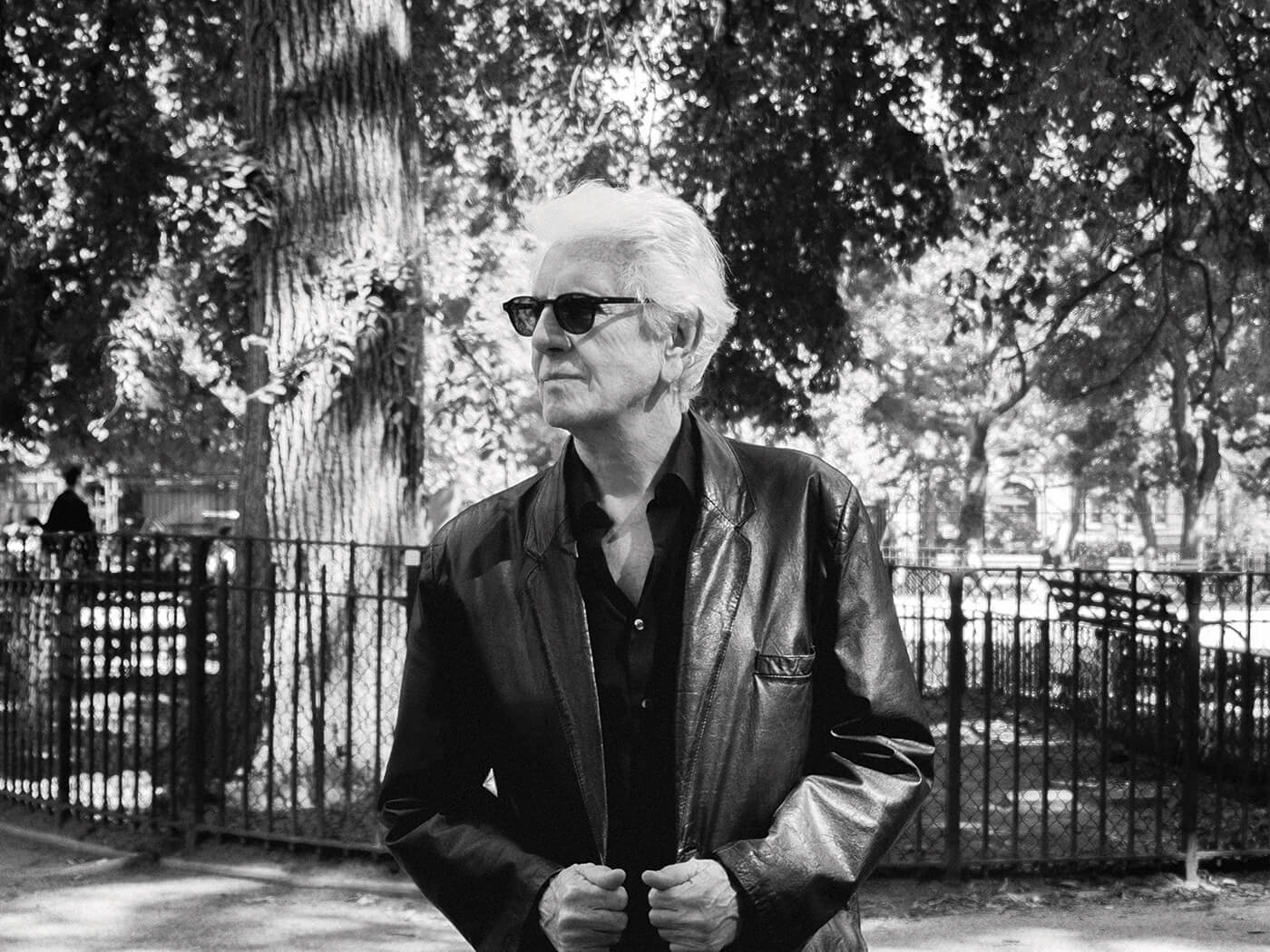Legacy artists can sometimes become convinced that the past – and the sounds and lyrical themes that made them famous – should be left in the rearview mirror. Believing their best years, and best songs, are in front of them, such artists become subsumed in reinvention, trendy collaborations or mediocrity, which often renders them desperate or tepid. Think Joni Mitchell’s Dog Eat Dog or David Bowie’s Never Let Me Down for prime examples.
At first glance, Graham Nash’s Now hints at these trappings, its title suggesting a preoccupation with the present that may mean so long to the past. In fact, the record doesn’t stray too far from the magic of his wheelhouse. Fans of Crosby, Stills & Nash, and the singer’s first two ’70s solo works – Songs For Beginners and Wild Tales – will recognise this album’s touchstones: namely love, political outrage, seraphic vocal harmonies and a breezy blend of acoustic, electric and steel guitars.
With Now, Nash doesn’t shun his roots, but he does update his propensities for the modern day, singing of current political turmoil, environmental destruction and his love for wife Amy Grantham, 37 years his junior, whom he married in 2019. The artistic geography may be familiar, but the material is fresh.
“I used to think that I would never love again/I used to think that I’d be all on my own”, he sings to open the album, an attention-grabbing misdirect from the thematic core of the first song, “Right Now”. Instead of woe-is-me self-pity, the song turns defiant, thumbing its nose at those who’d wish to steal Nash’s joy or criticise his choices. “Here I am/Still Living my life/Right now”, he proclaims, like an old-growth oak tree weathering a storm. “Right now”, he repeats.
It’s this mix of old and new, and the self-awareness and social responsibility that comes with age, that propels the notion of “now” even as the new songs ring of Nash’s musical history. Fifty-two years ago, on “Chicago”, Nash detailed the violence and racism surrounding the 1968 Democratic Convention and the subsequent trial of the Chicago Seven, when Black Panthers leader Bobby Seale was gagged and bound to a chair in the courtroom. Today, with “Golden Idol”, a similarly clear-eyed account of corruption, steered by a tempestuous electric guitar riff instead of a foreboding organ, he aims his pen at the Republican members of congress who’ve sought to diminish the terror of the January 6 attack on the US Capitol.
The key difference between the two songs is a palpable loss of optimism. Instead of proclaiming that “we can change the world”, he sings of politicians who are bought and paid for by lobbyists. “Tell me why”, he begs throughout, relaying not an artistic desperation, but a deeply human one, an amplification of reasonable Americans’ frustrations with a flawed system and the inaction that keeps it alive.
But it’s not all doom and gloom. Threaded through Now is the hope and elation brought on by love, and Nash’s unselfconscious mission to sing of it. If “When It Comes To You” and “Follow Your Heart” are all dripping, adult contemporary-adjacent sentimentality, standout love song “It Feels Like Home” updates the scene he set in 1970 with “Our House”. Its sunny blend of harmonica, acoustic guitar and pedal steel recall Nash’s days in hippie Laurel Canyon, with lyrics that reaffirm his fondness for the refuge of a lover’s company.
“A Better Life”, the album’s second track, also recalls a moment on Songs For Beginners when Nash sings of “Better Days”. But here he updates his historical rumination on broken heartedness to a call for collective action, positing the notion that society has a duty to make better choices for the sake of future generations. A similar historical arc is traced with “Buddy’s Back”, a paean to the rock’n’roll pioneer that doubles as a trip down memory lane, recounting his formation of The Hollies with Allan Clarke.
Given the evident callbacks threaded throughout Now, and the earnestness of an octogenarian in love, cynics might assume Nash is out of ideas. However, there’s a certain bravery in a songwriter knowing his audience, his place in the world and the broader cultural conversation. That he’s been a working musician for more than 60 years and has also avoided ill-fitting collaborations and other discomfiting trends is quite the feat. In making work that continues to challenge oppressive systems and relay his tender feelings, it’s clear Nash is very much alive in the now.

